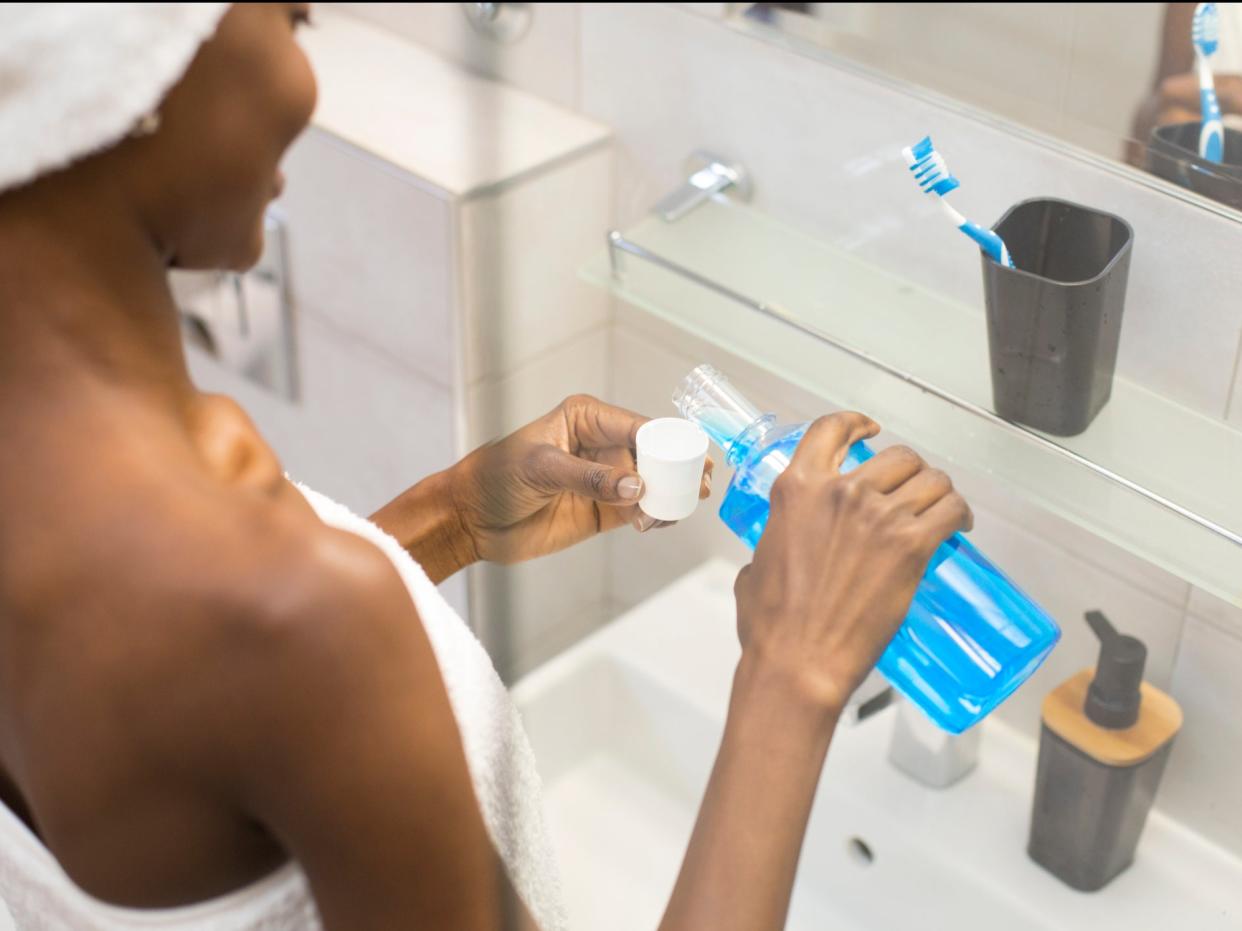Why you should never use mouthwash straight after brushing your teeth

A dentist has claimed that using mouthwash straight after brushing your teeth undoes the benefits of toothpaste and could lead to tooth decay.
In a series of TikTok videos, Anna Peterson, a London-based dentist, explained that rinsing with mouthwash after brushing could remove some of the protection that toothpaste provides.
“Using mouthwash after brushing your teeth is going to give you tooth decay, so stop doing it,” she said in a video that has now been viewed almost two million times.
Her statement prompted confusion from followers, many of whom had been using mouthwash in their routines.
Breaking down the reasoning for her advice, Peterson explained that toothpaste has 1450 parts per million of fluoride. Fluoride is a naturally occurring mineral that helps prevent tooth decay. It is found in toothpaste, water and some food.
“Your mouthwash has only 220 parts per million of fluoride,” Peterson said. “This is a much lower concentration and it’s not enough to protect your mouth from sugars that you’re going to eat and drink.”
This means that rinsing your mouth with mouthwash straight after brushing your teeth, rinses away the protection provided by a high-concentration fluoride for a much lower concentration of the mineral.
Her comments are in line with NHS guidance, which advises: “Using a mouthwash that contains fluoride can help prevent tooth decay, but don’t use mouthwash (even a fluoride one) straight after brushing your teeth or it’ll wash away the concentrated fluoride in the toothpaste left on your teeth.”
A spokesperson for the British Dental Association told The Independent that unless you have been advised by your dentist, you should not use a mouthwash after brushing your teeth.
“I don’t know why mouthwash companies haven’t changed that message. The amount of fluoride in mouthwash is usually at a much lower concentration than in toothpaste,” the spokesperson said.
Given that mouthwash has become a staple part of many people’s oral hygiene routine, many were left wondering when the best time is to use it if not after brushing.
“By no means am I against mouthwash, because I actually do recommend it to my patients. But not every patient needs it, and I certainly don’t tell them to use it after brushing,” Peterson said.
In line with the NHS, she explained that mouthwash should be used at a different time in the day, or after eating.
“Anything that you eat will have sugars of some sort. What happens when you eat sugars is that your mouth becomes acidic, so it drops in pH” she said, describing this as a “critical pH zone”.
At this point, brushing to increase the pH is harmful as it brushes the acid into the teeth. Instead, Peterson recommends using a mouthwash to get your teeth out of this “critical zone”.
Although the NHS and BDA agree that mouthwash should not be used straight after brushing, other experts have said that Peterson’s claim that doing so will lead to tooth decay is not correct.
Dr Nigel Carter, the chief executive of the Oral Health Foundation told The Independent that the evidence around “spitting don’t rinse is relatively weak”.
“It’s felt that if you spit out [toothpaste] then you keep some of the fluoride in your mouth. That’s where the message ‘don’t use mouthwash’ after brushing comes from.”
He stressed that there is “absolutely zero evidence that using a mouthwash is going to cause decay”, as claimed by Peterson.
“It’s just going to be, in the same way as water, tending to wash away the fluoride,” he said.
Read More
What is heatstroke, what are the symptoms and how can it be treated?
How to keep your pet safe and healthy in the heatwave
How to avoid the dangers of heatstroke this summer according to experts


